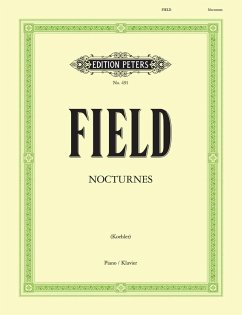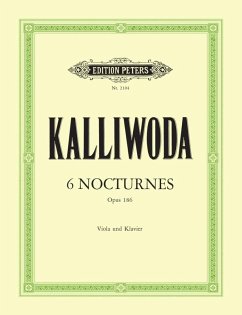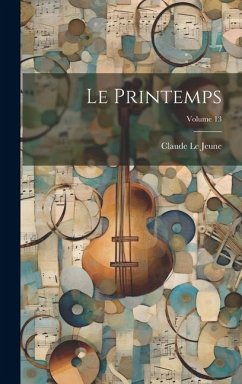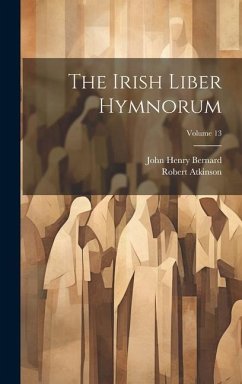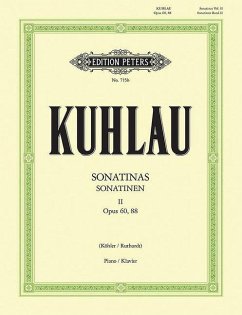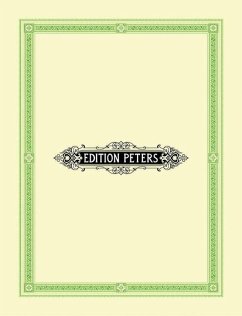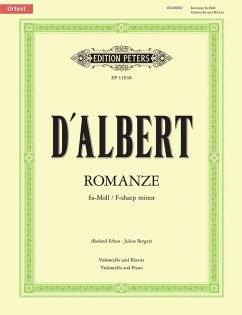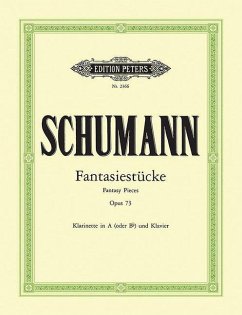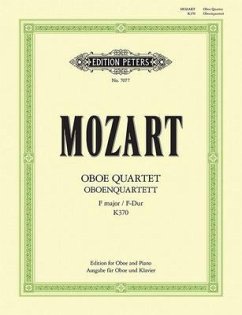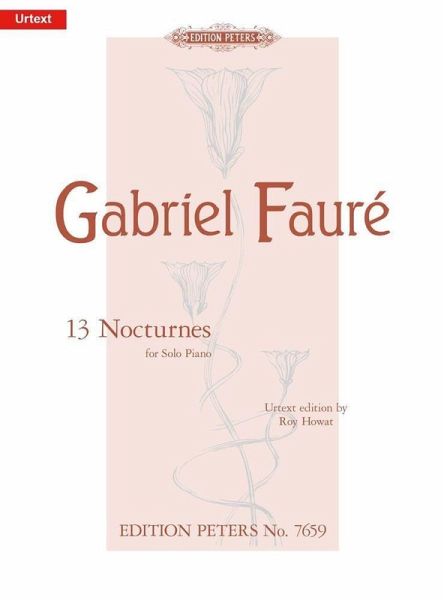
13 Nocturnes for Piano
Versandkostenfrei!
Versandfertig in 6-10 Tagen
25,99 €
inkl. MwSt.

PAYBACK Punkte
13 °P sammeln!
Just as this remarkable series of works spanned virtually the whole of Fauré's compositional career, so they can give us a lifetime of enrichment. One can only marvel at the source of inspiration which brought into being such profound utterances as the 6th or 10th Nocturnes, to name but two examples. The 'Nocturnes' had a particularly unfortunate publishing history. As a result, Howat identifies literally hundreds of corrections, amendments and alternatives deriving directly from Fauré's own pen. Characteristically, Howat is also always alert to the restless, fecund spirit of Fauré's creati...
Just as this remarkable series of works spanned virtually the whole of Fauré's compositional career, so they can give us a lifetime of enrichment. One can only marvel at the source of inspiration which brought into being such profound utterances as the 6th or 10th Nocturnes, to name but two examples. The 'Nocturnes' had a particularly unfortunate publishing history. As a result, Howat identifies literally hundreds of corrections, amendments and alternatives deriving directly from Fauré's own pen. Characteristically, Howat is also always alert to the restless, fecund spirit of Fauré's creativity; as such, he tends to regard slight discrepancies in repeat or parallel passages as perfectly deliberate, rather than composer 'errors' to be standardized. Among the multiplicity of sources consulted are piano-roll recordings of three of the Nocturnes by the composer himself. "A new edition of Fauré's Thirteen Nocturnes has long been needed, to clean up literally hundreds of old misprints and dubieties. Indeed, towards the end of his life Fauré prepared a corrected edition of his first eight Nocturnes, but this went so badly wrong that he tried, just before he died, to block its publication. Undeterred, the publisher concerned (Hamelle) issued it in that state in 1924, and that's what's been available since - cluttered since the 1950s by editorial fingering.The new London Peters edition (which replaces the Leipzig one) has compared all known manuscripts and prints from Fauré's lifetime, along with some piano rolls recorded by Fauré and memoirs and scores marked up by pianists who worked with him. A few of Fauré's own printed copies survive, showing numerous written corrections by him that never made it into the 1924 re-edition and which are now printed for the first time. The preface includes some performing advice that can be traced back to Fauré; it bears out his wish to have his music played in time and up to his dynamics, without sentimental rallentandi or soggy rubato." Roy Howat, 2006 13 Nocturnes für Klavier "In der Klaviermusik ist kein Platz für Firlefanz", schrieb Gabriel Fauré seiner Frau Marie 1910. Diese Nüchternheit überträgt er auf seine 13 Nocturnes, die anstatt Träumereien elegante Klavierwerke sind.Sie begleiten ihn schon durch sein ganzes Leben, beeinflussen sein Schaffen und lassen ihn sich auf das Wesentliche konzentrieren. Von der ersten Nocturne bis zur letzten vergehen 50 Jahre, und doch blieb Fauré sich und seinem Stil treu. Im Gegensatz zu anderen Komponisten, die sich der Gattung annahmen, verzichtet er meist auf allzu virtuose Eskapaden und verlässt sich darauf, durch warme Tonarten mit einigen Vorzeichen, Modulationen und nette Melodien zu überzeugen. Zusätzlich zum Notentext verfügt diese Ausgabe von Roy Howat über ein ausführliches historisch-theoretisches Vorwort und einen kritischen Kommentar über die revidierte Version.



